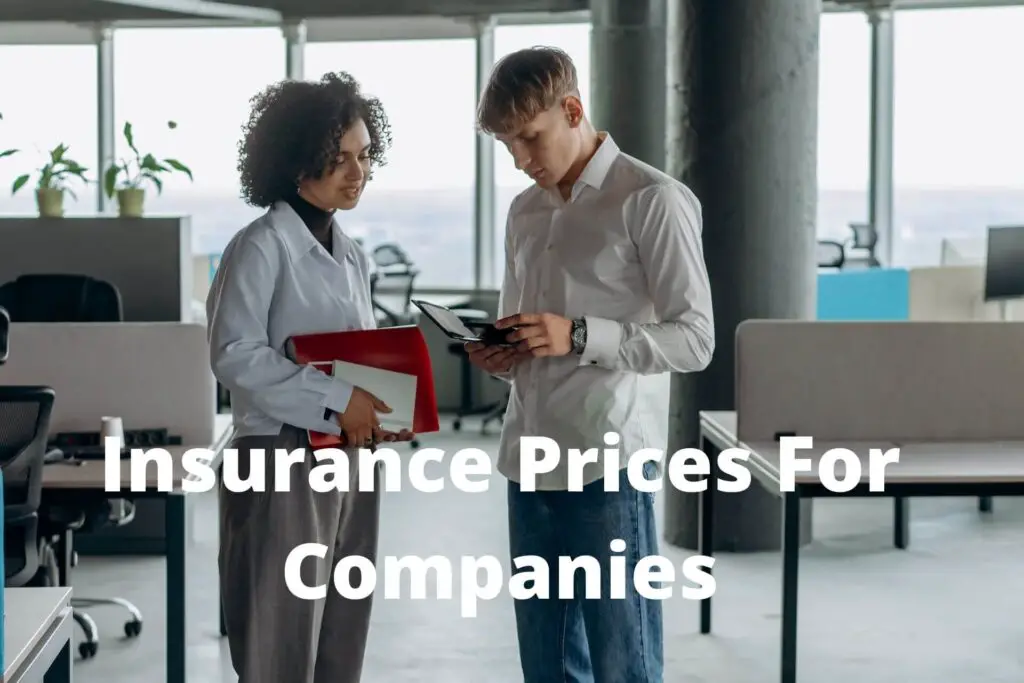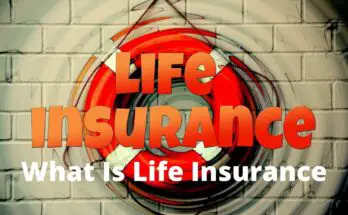Introduction
Do you know what is small business insurance? Any type of company knows that it is exposed to risks when carrying out its activity. There is no law that requires companies to have insurance, but choosing one of the insurance policies for small businesses is the most appropriate option, that way you will have peace of mind and can deal with any incident.
Today on the MV Aseguradores blog we discuss this vitally important topic.
Read Also: What is Workers Compensation Insurance 2024
What is Small Business Insurance
Mainly it is insurance that a company contracts with an insurer to have coverage against possible risks. Due to the difference in activities and risks, there are different types of insurance for SMEs. It is essential that this insurance for SMEs is personalized because that is when the coverage that the company really needs will be contacted.
Otherwise, it could be that some risks are not covered and you could get into trouble. Each company is different, and that is where the importance of getting advice when choosing insurance lies. There are companies that will need to take care of their employees and their customers.
Others, who do not serve the public, but work with machinery or technology, will have other needs. Having insurance or not is what can make the difference. There are cases in which accidents have been suffered and the company has to close due to the inability to meet the expenses.
Types of Small Business Insurance Policies
There are thousands of business insurance policies that serve to cover the risks to which our business may be exposed. Even if it is a small company, risk is always present. For certain professionals or private businesses, it is mandatory to take out insurance. An example is doctors or lawyers, and self-employed professionals such as bricklayers, electricians, etc.
Types of Insurance for Existing Companies and SMEs
Accident insurance for workers: it must be contracted according to the collective agreement since a large part of these agreements require it to be contracted. Workplace accidents or possible natural or accidental death of the worker are covered.
Civil Liability Insurance: is a type of insurance or coverage in business insurance. Responds to civil damages that occur in professional activity. If there is an accident on the company’s premises, it will have to be dealt with. It also covers professional cases of self-employed workers such as lawyers, economists or advisors, for example.
Multirisk Insurance: it is the most complete. When you have an office, industry or factory, it is recommended to have this coverage. Damage to the premises, structure, container, furniture, and machinery, among others, is covered. It also usually involves claims for damages caused by third parties.
Sick leave insurance: in some insurance policies for self-employed or small businesses, it is recommended to add this coverage, this way there will be fewer losses, and compensation is received in the event of sick leave of an employee or the professional themselves.
Insurance for self-employed vehicles: if you are self-employed and have a vehicle for work reasons, there is the possibility of covering damages and adding different coverages so that this work tool does not cause you to lose profits in your daily life.
Medical insurance: it is not always included, but there are small companies that decide to give it as a bonus to their employees.
What are Self-Employed Insurance like?
The fact of working independently and not being an SME does not mean that we do not need insurance. We will be equally or more exposed to an accident of various characteristics. The self-employed person must also consider the coverage that is needed, just as multi-risk insurance for SMEs considers it.
Again, it will be necessary to take into consideration the profession in which you are dedicated. In general, civil liability insurance would be mandatory. From here you must adapt to your profession and the risks you are exposed to on a daily basis. It should be noted that insurance is also different when a self-employed person works alone than when he or she has employees.
In the case of having employees, you have to think a little more like an SME. Insurance will have to be added according to the agreement to which it applies to the workers. A similar case happens if you have a vehicle for professional use. It is recommended that the insurance be insured for professional vehicles that provide more coverage than a private vehicle.
Other Insurance to Consider for a Self-Employed Person
There are other insurances that can become essential for a self-employed person. It will depend on each person and each situation. Among those that are sought to contract are, for example, Life Insurance or Health Insurance as the most in demand.
Accident and sick leave insurance is also included, taking into account the very low compensation that the self-employed receive. In recent years, there has been a considerable change in the concern of the self-employed about their pension. So many have decided to take the plunge into hiring Retirement Insurance for the self-employed.
Insurance Prices for the Self-Employed
Given everything we have talked about, it is clear how much insurance for companies costs and that it does not have to be the same as for a self-employed person. The coverage, not having employees, etc. is what makes the price of multi-risk insurance for companies and self-employed workers vary.
This will also include the decision of what type of insurance is defined to be contracted. For example, sick leave and accident insurance cost approximately 250 euros per year. Thanks to it, compensation of 40 euros per day of sick leave could be collected. Remember that this type of compensation is compatible with that offered by Social Security. Something similar happens with health insurance.
There are various types and modalities so it is impossible to determine a general price. As for the basic insurance such as Civil Liability, for a self-employed person, it could cost about 150 euros per year. Of course, there is the possibility of contracting these different coverages from the same insurer. Which would make the price easier to negotiate in general.
The recommendation here is to have a specialist advisor, such as those from Insurance Brokers. Thus, you will have different options to choose from, all based on your needs as a freelancer. We should not skimp on taking out insurance or think that nothing will ever happen to us. The sick leave of a self-employed person has such low compensation that it is impossible to maintain the fixed expenses of a working person.

Choosing Small Business Insurance
Among the most common accidents that a company or even a self-employed professional has, the following stand out:
• Negligence.
• Failure to comply with the law.
• Breach of intellectual property rights.
• Heist.
• Accidental damage.
For this reason, they are the coverages that are most requested or consulted when wanting to know how much business insurance costs. There is no point in having small business insurance policies that do not meet our expectations. One of the big risks is not really knowing what insurance has been contracted or the risks it covers.
You must carry out a thorough study of the risks existing in the company and from there apply these observations to hiring, it is the best for your company. To avoid making mistakes in these cases, it is advisable to have the experience and advice of professionals from an Insurance Brokerage. Not understanding the contracted policy means that we do not know whether or not we are covered for all existing risks.
Insurance Prices for Companies
As in any case, determining insurance prices for businesses, SMEs or the self-employed is complex. You have to evaluate very well what the risks and necessary coverage are. All that analysis and research will be very useful to ignore those coverages that do not interest you and focus on adding those that are important.
Another factor to take into account in insurance policies for small businesses
In the business insurance comparator, you have to differentiate very well between the container and the content. The container mainly refers to the buildings that are part of the company and the content is all the elements found inside, machinery, stock, etc.
The policy that refers to the premises, office, and factory, is calculated by the square meters to be insured, but other data such as the location or the type of work being done is also usually taken into account.
Regarding the Internal Elements
The calculation is made by the objects to be insured to determine the price of the policy. From there, you must decide what to include in the policy and take into account that elements not included or for a lower value may not be compensated or the value will be lower.
Of course, in all cases, Civil Liability Insurance is almost mandatory within the insurance of a company or SME. Taking all these factors into account, it will then be possible to calculate how much insurance of this nature costs. To give you an idea, Multi-risk Insurance can vary between 300 to 400 euros, always knowing that it will depend on the type, activity, and size of the company.
What is advisable in these cases is to be able to unify and have personalized insurance for our business with maximum coverage. Don’t trust yourself to think that because you are a small business or self-employed, there are things that are not going to happen to you. All companies are exposed to constant risks.
Errors when taking out business insurance
Given everything we have talked about; it is normal that errors are made during the contracting of these insurances. There are many points to take into account to be calm.
My company does not need insurance:
This is a very common mistake, especially for a small company. It is believed that for that simple fact or because we are a professional we do not need it. The fact that no mistake has been made or an accident has occurred so far does not mean that it will not happen.
We may be exposed to errors from third parties. Consider that about 60% of businesses have at least one accident a year. Also, 7 out of 10 businesses disappear when there is a large accident due to not having insurance.
Ask a friend or family member for help:
Making the decision about which insurance to take out is not something that can be done lightly. We have already seen that there are several points to analyze and take into account. It’s okay to have the opinion of a friend or family member, but you need a person with experience in the world of insurance. A professional from an Insurance Brokerage can answer questions and help define coverage. Also to manage and help in the event of an accident.
Believing that all insurance is the same:
Thinking that we have everything included in insurance is a serious mistake. Likewise, I believe that all insurers will offer us the same coverage and conditions. We have to know very well what we are hiring. There are many cases that happen in which they have an accident and believe that they will be covered when later this is not the case.
Have inadequate insured capital:
When it is necessary to insure assets if it is done for a lower value, a great risk will be committed. At first, you think that there will be no problem and that it is actually a money saver. In the long run, what will happen is that you will receive compensation that is much lower than the real value of the property.
Just look at the price:
We have already seen that insurance for SMEs is not economical, but this cannot be the most important factor. The price to pay must be in accordance with the coverage offered to us.
5 Insurances for SMEs
The self-employed and small and medium-sized companies (SMEs) are the largest representatives of the Spanish business fabric. That is to say, their presence is much larger than that of large companies, although the latter can dominate the offers in the labor market.
But, to maintain their status as the heart of the national economy, SMEs need to guarantee certain protections in their daily lives. Not in vain, their routine is necessarily based on the assumption of certain risks. Because when things don’t go well or don’t go well, it’s not just the smooth running of the business that is affected.
Any person or supplier that is related to the company can also be a victim of errors or setbacks derived from the activity. For this reason, insurance for SMEs exists, policies that are not mandatory, but are necessary for these companies to survive the problems.
Insurance for SMEs: the Five Basic Coverages
Depending on the type of business or the needs of the company, these are the coverages for SMEs that are not mandatory but recommended:
Office material damage: With the same bases as those of home insurance, this coverage arises especially applied to businesses. In this case, the policy covers damages caused to the SME’s headquarters such as broken glass, water damage, aesthetic damage, etc.
It also includes expenses derived from damages to third parties (for example, destruction of documents or personal injury) and, on some occasions, other additional coverage such as loss of profits or breakdown of machinery or electronic equipment. Depending on the type of company, one or other conditions will be necessary.
General Civil Liability: The law establishes that any entity is obliged to repair material or physical damages and losses caused to a third party, whether an employee of the company or external to it, during the exercise of an economic activity. Having Civil Liability insurance (CR) provides peace of mind and the necessary coverage for the financial expenses that may arise from any accident.
Professional Civil Liability: Some activities, due to the nature of their trade, require specific civil liability coverage. They are not mandatory by law, but such is the magnitude of the consequences if something goes wrong that more and more clients are taking out this type of policy.
At Hiscox, aware of this reality and with the aim of adapting to the needs of each of the companies, more than 150 professionals receive protection against damages caused to third parties by the development of their activity.
Administrators and Directors (D&O): These two figures from the upper echelons of small and medium-sized companies are the target of more and more complaints and lawsuits. No matter the sector of activity or the origin of the requirement, these positions need certain guarantees and protections to continue playing their role in decision-making in the company.
At this point, we remember that negligence and an estimated lawsuit can force these managers to respond with their personal assets.
Cyber risks: In the 21st century, very few businesses remain outside the internet. Everyone uses the network for different purposes and everyone is at risk of an attack by a hacker or a technological accident. These incidents, which can paralyze activity almost permanently, can be covered with specialized cyber risk insurance.
Although these five insurance policies for SMEs are not mandatory, they can be perfect to cover all the company’s protection needs. Before hiring them, managers must ensure that they are truly efficient. To do this, they must be specialized, understandable, and cover the real value of what is being insured. Do you have every one for your business?



